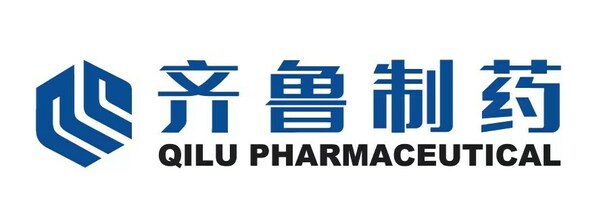Advances of Qilu Pharmaceutical's QL1706 in Clinical Research Presented at ASCO Annual Meeting

JINAN,China,June 1,2023 --The American Society of Clinical Oncology (ASCO) recently announced the selected abstracts for the prestigious ASCO 2023 Annual Meeting. Four clinical research abstracts on QL1706 (iparomlimab/tuvonralimab),an innovative bifunctional antibody for immunotherapy,were accepted in the Poster Session. Two of the postersfocuson the latest clinical research progress of Qilu Pharmaceutical's QL1706 in extensive-stage small cell lung cancer (ES-SCLC) and advanced hepatocellular carcinoma (HCC).
Study One: A Phase II Clinical Study of QL1706 in Combination with Carboplatin and Etoposide as First-line Treatment for ES-SCLC
This study is an open-label,single-arm,multicenter Phase II clinical study aimed at evaluating the safety and efficacy of QL1706 in combination with carboplatin and etoposide as first-line treatment for ES-SCLC. A total of 40 patients were enrolled in the study,with a median age of 58.5 years (range,38-73). 87.5% of the patients were male,80% had a history of smoking,and 90% had an ECOG performance status of 1.
As of the data cutoff date (January 16,2023),the median treatment duration of QL1706 was 5.9 months (range,0.7-8.9). All patients experienced at least one treatment-emergent adverse event (TEAE). A total of 32 patients (80%) experienced at least one QL1706-related treatment-related adverse event (TRAE); 15 patients (37.5%) experienced grade 3-4 TRAEs; no grade 5 TRAEs or adverse events leading to discontinuation of treatment occurred.
A total of 39 patients had at least one post-baseline tumor assessment,of whom 37 patients assessed as partial response (PR) (including 2 unconfirmed PRs) and 1 patient as stable disease (SD). The confirmed objective response rate (ORR) was 89.7% (35/39),and the disease control rate (DCR) was 97.4% (38/39) per RECIST version 1.1. The median duration of response (mDoR) was 4.5 months,and the median progression-free survival (mPFS) was 5.7 months. With a median follow-up time for overall survival (OS) of 6.2 months,the median OS has not been reached.
The results showed that QL1706 in combination with carboplatin and etoposide as first-line treatment for ES-SCLC had good tolerability and demonstrated promising efficacy.
Study Two: A Phase Ib/II Clinical Study Evaluating the Safety,Pharmacokinetics,and Preliminary Efficacy of QL1706 or QL1604 in Patients with Advanced HCC
QL1604 is a PD-1 monoclonal antibody. The PD-1 antibody component in QL1706 is same with QL1604 in the molecular sequence,the procession of host cells construction and transfection,and the monoclonal screening process. In other words,QL1706 was furtherly engineered by incorporating the recombinant plasmid carrying the anti-CTLA-4 antibody into the QL1604 clone through transfection and monoclonal screening processes. Preliminary in vitro and in vivo factorial studies have been conducted to analyze the properties of both antibodies.
This multicenter phase Ib/II clinical trial consists of three parts. Part 1 is a safety lead-in/expansion phase. In part 2,patients were randomized to receive either QL1604 or QL1706 (5 mg/kg,every 3 weeks) in combination with bevacizumab. Initiation of Part 3 will be based on the results from Parts 1 and 2. The primary endpoint was safety. The secondary endpoints included objective response rate (ORR),disease control rate (DCR),and progression-free survival (PFS).
As of the data cut-off date (November 18,2022),a total of 76 patients (50 patients in QL1706 group; 26 patients in QL1604 group) were enrolled in Parts 1 and 2. Baseline characteristics were well balanced between the two groups. The incidence of treatment-related adverse events (TRAEs) was 86% in the QL1706 group and 88.5% in the QL1604 group. The most common TRAEs in both groups were proteinuria (32.0% vs. 30.8%),followed by decreased platelet count (26.0% vs. 23.1%) and increased aspartate aminotransferase (22% vs. 19.2%). The incidence of treatment-related serious adverse events was 16% and 23.1% in the QL1706 group and the QL1604 groups,respectively. Immune-related adverse events occurred in 50% and 19.2% of patients in the QL1706 group and the QL1604 groups,respectively.
In the efficacy evaluable population,the QL1706 group had an ORR of 38.3% (18/47) and a DCR of 74.5%. The QL1604 group had an ORR of 15.4% (4/26) and a DCR of 69.2%. The median PFS were 6.7 months and 5.4 months in the QL1706 group and the QL1604 groups,respectively. The median overall survival has not been reached in either group.
These results suggest that QL1706,in combination with bevacizumab,resulted in a higher ORR and longer PFS compared to QL1604 when used as first-line treatment for advanced HCC. These findings support further investigation of QL1706 plus bevacizumab for first-line treatment of advanced HCC in a phase III clinical trial.